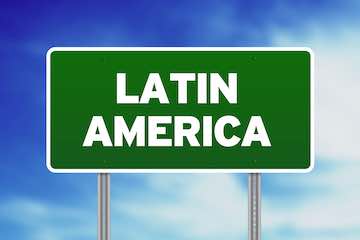During the pandemic, Latin America became a hot market for tech startups, with foreign venture capital flooding the region. Latin America now hosts 23 private “unicorn” companies — valued over $1 billion — according to Crunchbase. Overall, these companies have raised more than $15 billion. Roughly two-thirds of them are based in Brazil, but data indicates other countries are catching up.
VCs continue to funnel money into the region. Brazil and Mexico, the two largest markets in terms of population and economic activity, have shown the biggest uptick in startup funding. The Association for Private Capital Investment in Latin America (LAVCA), a not-for-profit membership organization, reports that VCs invested $10.3 billion in more than 400 Latin America startups in the first half of 2021, doubling the investment in the same period in 2020. Brazil is home to 53% of Latin-America startups, while Mexico contributes 14%.
Digital payments are relatively underdeveloped in Latin America, which is why so many fintech startups have recently blossomed. Fintech is a major area of foreign VC funding as investors view better and more varied payment options as a boon to ecommerce.
In 2020, $2 billion in capital went to Latin American fintech companies. 2021 has equaled that amount and will almost certainly exceed it by year-end. Brazil-based Nubank, which is entirely digital, is the largest recipient, garnering $1.5 billion in VC investment, with $950 million coming in the last three years.
This month Mexico-based Konfio, a payments firm, secured $110 million in Series E funding, bringing its value to $1.3 billion. Konfío said it would use the funds for acquisitions and to expand its Mexican operations. The company, which serves that small and medium-sized businesses, offers credit, B2B payments management, and a cloud-based financial management system.
Latin American Ecommerce
Market research firm Statista calculates that Latin America has about 300 million ecommerce customers. While it lags other developing regions, ecommerce revenue is expected to reach $85 billion in 2021 and $121 billion by 2023. Brazil and Mexico contribute 31% and 28% of the total, respectively. Other countries — notably Argentina, Peru, and Colombia — are experiencing swift growth but have small ecommerce markets. Nonetheless, online shopping is growing across the region, due in part to Covid-19, and new companies are emerging.
The result is that Latin America-based ecommerce companies are attracting much investment capital.
Notable standouts include:
Merama. Launched in December 2020, this ecommerce aggregator raised $225 million in Series B funding in September to reach a valuation of about $850 million in less than a year. Merama buys private label businesses on Amazon and MercadoLibre, the largest Latin American marketplace. It acquires a majority interest but lets the founders continue running the business. With dual headquarters in Mexico City and São Paolo, Brazil, Merama has acquired stakes in 20 brands operating in Brazil, Chile, Colombia, and Peru.
Kavak. One of the biggest 2021 capital recipients is Mexico City-based Kavak, a platform for buying and selling used cars. It raised $700 million in Series E funding in September, which brought its valuation to $8.7 billion. Just five months ago, it raised $485 million. Kavak is now the second most valuable startup in Latin America after Nubank.
Nuvemshop. Brazil-based Nuvemshop is a marketplace that provides SMBs in Latin America with the tools to set up, manage, and promote their online businesses. Its latest funding round in August 2021 raised $500 million, turning it into a unicorn.
QuintoAndar. This São Paulo-based long-term home rental marketplace received $120 million in VC capital in August, less than three months after a $300 million Series E round. QuintoAndar’s valuation is now $5.1 billion. The firm has expanded into connecting home buyers to sellers.
Rappi. Colombia-based Rappi offers an on-demand delivery service for prepared meals, groceries, tech goods, and medicine. In July it collected $500 million in a Series F round, bringing its valuation to $5.2 billion. It operates in nine Latin American countries.
Credit: Source link





















